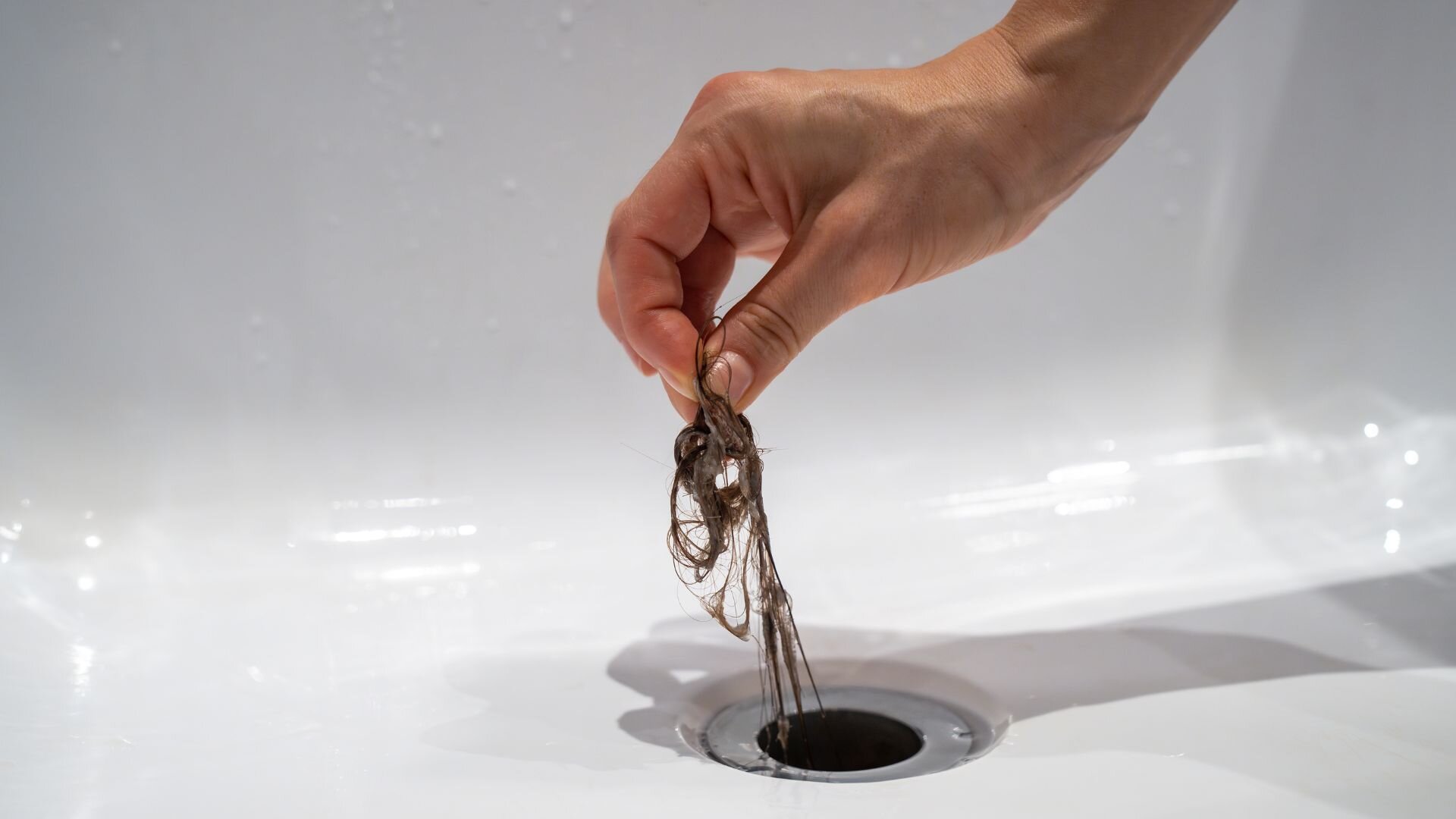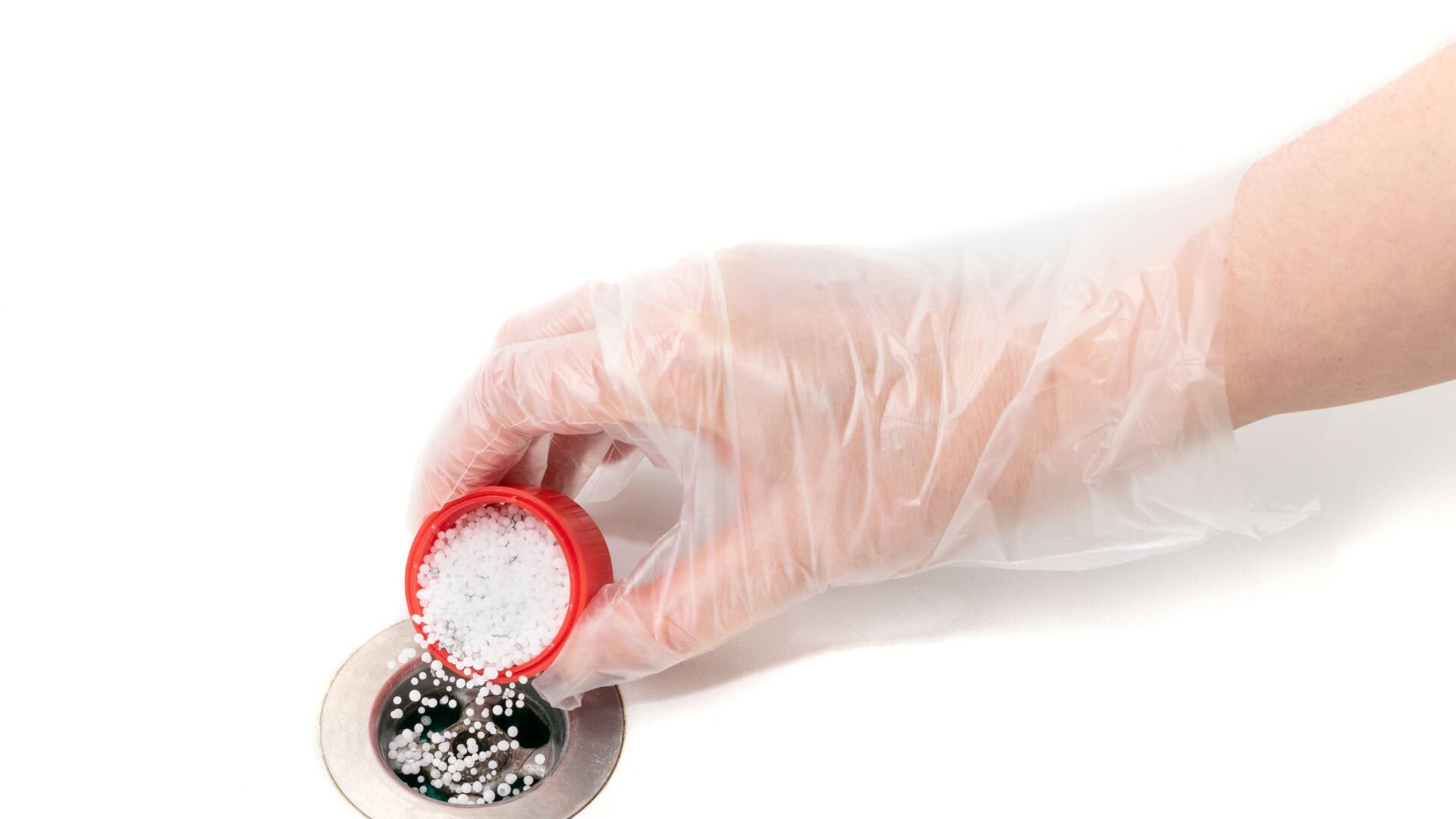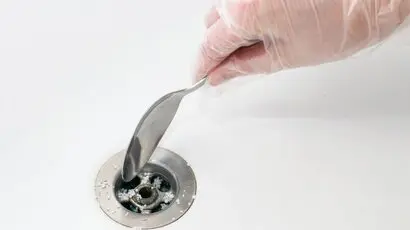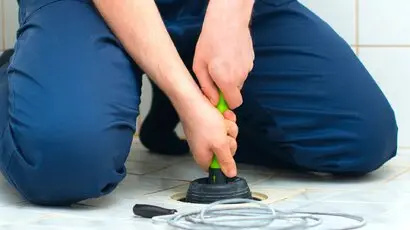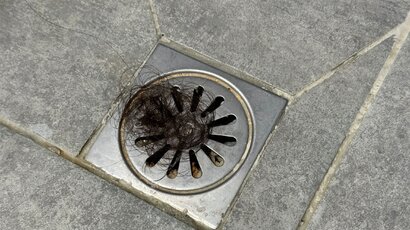No one likes dealing with blocked drains, and in Australia, they can really throw a spanner in the works of your daily routine. From a shower drain slowing to a trickle due to hair build-up, to a bathroom sink overflowing with foam, it’s important to nip the clogging issue in the bud. Otherwise, things can quickly get out of hand.
If left unchecked, blockages can escalate, potentially leading to backups in places like your kitchen sink or even the toilet. While basic clogs from hair or soap can often be sorted with DIY tricks—think baking soda and boiling water—more stubborn problems caused by grease or foreign objects might call for tougher measures.
Fortunately, there are quite a few options available when it comes to cleaning drains. From trusty plungers and drain snakes to chemical cleaners, there’s something for every clog. You’ll find all sorts of tools at your local hardware store, from plungers and augers to makeshift options like straightened wire coat hangers. For blockages buried deep in the plumbing, however, you might need to call in the pros.
Common Causes of Blocked Baths
![]()
Hair and Soap Scum Buildup
One of the primary culprits behind clogged drains in the bathroom is the accumulation of hair and soap scum. These substances often combine to form stubborn blockages in shower drains and bathroom sinks. To tackle this issue, homeowners can use a drain snake or wire coat hanger to pull out hair clogs. For minor clogs, a mixture of baking soda and vinegar followed by boiling water can be effective.
Foreign Objects
Toilets and sinks can become blocked when foreign objects are flushed or dropped down the drain. Items like excessive toilet paper, flushable wipes or other debris can cause blockages in sewer lines. A plunger or toilet auger may help unblock these obstructions. For more stubborn clogs, a drain auger might be necessary to clear the pipes.
Mineral Deposits
Hard water can lead to mineral deposits in pipes, causing slow-flowing drains. Regular use of drain cleaning tools and hot water can help prevent build-up. In severe cases, a drain cleaner from the hardware store may be required to dissolve these deposits and restore proper flow.
Tree Root Intrusion
In older homes, tree roots can infiltrate sewer lines, creating major blockages. Professional plumbing services may be needed to address this issue, as it often requires specialised drain cleaning equipment to clear the organic matter and restore proper pipe function.
Signs of a Blocked Bath
A telltale sign of blocked drains is slow draining water in your shower drain or bathroom drain. You might notice gurgling sounds as water struggles to pass through the pipes. Unpleasant odours often emanate from clogged toilets or drains, indicating a build-up of debris or bacteria.
If you observe water backing up, it’s time to take action. Start by removing the drain cover and using a drain snake to dislodge any blockages. For minor clogs, try pouring boiling water down the drain, followed by a mixture of baking soda and hot water.
When these methods fail, consider using drain cleaning products. However, exercise caution with chemical cleaners, as they can damage pipes. Always wear rubber gloves when handling these substances.
A drain cleaner may be necessary for stubborn blockages. If DIY methods prove unsuccessful, it’s best to call a professional to unclog drains and address any underlying issues with your plumbing system.
DIY Methods for Unblocking a Bath
When faced with a clogged toilet or bath, Aussies can turn to several effective DIY methods before calling a plumber. These techniques can save you a bundle and sort out most blockages, whether caused by soap clogs or more stubborn grease clogs.
Plunging techniques are a top choice for clearing blockages. Start by ensuring there’s enough water in the bath to cover the plunger head. Place the plunger over the drain and pump vigorously to create suction. This method requires a bit of elbow grease but can often shift minor obstructions.
For less severe blockages, a boiling water flush might do the trick. Carefully pour a kettle of boiling water directly into the drain. The heat can help break down soap clogs and other organic matter. Be cautious, though, as excessive heat could potentially lead to burst pipes in older plumbing systems.
A baking soda and vinegar solution is another popular method. First, pour about a cup of baking soda down the drain, followed by an equal amount of white vinegar. The resulting fizzy reaction can help dissolve many types of blockages, after letting it sit for about 30 minutes, flush with hot water.
For more stubborn clogs, the wire coat hanger method can be effective. Straighten a wire hanger, leaving a small hook at one end. Carefully insert this into the drain to fish out hair and debris. Be gentle to avoid scratching the bath surface.
While these methods are generally safe, it’s important to avoid harsh chemicals like caustic soda, which can damage your plumbing. If these DIY techniques don’t solve the problem, it’s best to consult a professional plumber to prevent more serious issues down the track.
Chemical Drain Cleaners
![]()
Types and Considerations
Chemical drain cleaners are a common solution for clearing blocked drains in sinks and other plumbing fixtures. Several types are available at your local hardware store, including caustic, oxidising, and acid-based cleaners. Each contains strong chemicals designed to dissolve various clogs.
Advantages and Disadvantages
The pros of chemical cleaners include their convenience and effectiveness for minor blockages. They’re readily available and can be a quick fix when you’re in a pinch. However, the cons are significant. These products can damage pipes, especially with repeated use, and pose health risks if mishandled. They’re also harmful to the environment.
Safety Measures
When using chemical cleaners, safety precautions are crucial. Always wear protective gloves and eyewear, ensure proper ventilation, and never mix different products. It’s best to start with one cup of cleaner and follow the instructions carefully. If the blockage persists, avoid adding more boiling water or additional chemicals, as this can cause dangerous reactions.
Professional Assistance and Alternatives
For stubborn clogs, consider seeking professional help from a plumber. They can use specialised tools like a plumber’s snake to clear blockages without relying on harsh chemicals. A plumber can also inspect and clean the p trap, a U-shaped pipe under the sink that often collects debris.
Eco-friendly alternatives to chemical cleaners include natural solutions like baking soda and vinegar or enzymatic cleaners that use bacteria to break down organic matter. For minor clogs, a plunger or manual drain snake can be effective. Regular maintenance, such as running hot water through drains weekly, can help prevent blockages and reduce the need for chemical interventions.
Mechanical Tools for Unblocking Baths
When faced with a stubborn clog in your bath, several mechanical tools can help you tackle the job effectively. These devices are often used by professional plumbers but can also be handy for DIY enthusiasts.
Plumber’s Snake or Auger
As mentioned, the plumber’s snake, also known as an auger, is a versatile tool for clearing blockages. This long, flexible cable is inserted into the drain and manoeuvred through the pipes to break up or retrieve the obstruction. As you push and rotate the snake, it can dislodge hair, soap scum, and other debris causing the clog. Some models even feature attachments to help soften and break down tougher blockages.
Drain Claw
Another useful implement is the drain claw. This simple yet effective tool consists of a long, thin rod with a claw-like mechanism at one end. It’s particularly adept at removing hair and other fibrous materials that often accumulate in bath drains. The claw can grab onto the clog, allowing you to pull it out and clear the blockage.
Pressurised Drain Blaster
For those seeking a more forceful approach, a pressurised drain blaster might be the answer. This tool uses compressed air or water to create a powerful burst that can dislodge stubborn clogs. While effective, it’s essential to use this tool cautiously to avoid damaging your pipes.
Electric Drain Auger
An electric drain auger is a more powerful version of the manual plumber’s snake. It uses a motor to rotate the cable, making it easier to navigate through complex pipe systems and tackle more challenging blockages. This tool is often favoured by professional plumbers for its efficiency in clearing tough clogs.
For those tenacious bath blockages, mechanical tools can be quite effective, sparing you from resorting to harsh chemicals. But if you’re not confident about handling the task, reaching out to professional plumbers is a smart move. They can evaluate the problem and choose the best tools to clear your drains safely and effectively.
High-Tech Solutions for Drain Cleaning and Maintenance
Modern plumbing technology has revolutionised drain cleaning and maintenance, offering efficient and eco-friendly solutions. Three notable innovations are hydro-jetting equipment, CCTV drain inspection cameras, and enzymatic drain cleaners.
Hydro-jetting equipment uses high-pressure water streams to blast away stubborn clogs and buildup inside pipes. This powerful method can clear blockages caused by grease, mineral deposits, and even tree roots. It’s highly effective for both residential and commercial applications, leaving pipes clean and free-flowing without the use of harsh chemicals.
CCTV drain inspection cameras allow plumbers to visually assess pipe conditions without excavation. These waterproof cameras, attached to flexible rods, can navigate through complex pipe systems, providing real-time video feedback. This technology enables accurate diagnosis of issues like cracks, corrosion, or obstructions, facilitating targeted repairs and preventive maintenance.
Enzymatic drain cleaners take a biological approach to keeping your drains in tip-top shape. These clever products use beneficial bacteria to churn out enzymes that munch through organic gunk in your pipes. They’re a far cry from harsh chemical cleaners and are both eco-friendly and gentle on your plumbing. Working gradually, they help digest waste, prevent build-ups, and keep your drains running smoothly for the long haul.
These high-tech solutions demonstrate the plumbing industry’s commitment to efficiency, accuracy, and sustainability in addressing common drainage issues.
![]()
Choosing the Right Tool for Your Situation
Assessing the severity of the blockage
Identify the extent of the clog - minor slowdown or complete blockage. This determines the level of intervention needed.
Considering the drain type and location
Different tools suit various drains. Sink plungers work well for sinks, while toilet augers are designed for toilets. Consider accessibility and pipe material.
Weighing cost versus effectiveness
Compare tool prices with potential plumber fees. Inexpensive options like plungers may suffice for minor clogs, while severe blockages might require pricier professional-grade tools or services.
Environmental considerations
Opt for eco-friendly solutions when possible. Avoid harsh chemicals that can harm pipes and ecosystems. Mechanical methods like plungers or augers are often more environmentally sound.
When it comes to clearing your drain, it’s important to choose wisely. Consider the severity of the blockage, the type of drain, and your budget. Don’t forget the environmental impact too. Making informed decisions can save time, money, and reduce harm to your plumbing and the planet.
Expert Help at Your Fingertips
Equipping yourself with the right tools and products is essential for effectively tackling a blocked bath. From plungers and drain snakes to enzymatic cleaners and baking soda solutions, there are numerous options available to suit different types of blockages and severity levels. However, it’s crucial to remember that while these DIY methods can be effective for minor clogs, persistent or severe blockages may require professional intervention to prevent damage to your plumbing system.
This is where WP Plumbing comes in. Our team of experienced plumbers specialises in resolving even the most stubborn bath blockages quickly and efficiently. We use advanced techniques and professional-grade equipment to ensure your drains are thoroughly cleared and functioning optimally. Don’t let a blocked bath disrupt your daily routine – speak with our WP Plumbing team today for expert assistance. Our friendly staff is ready to schedule your appointment and provide you with the top-notch plumbing service you deserve. Take action now to restore your bath to perfect working order!

